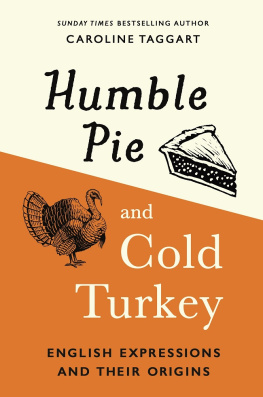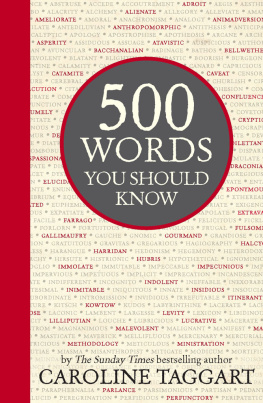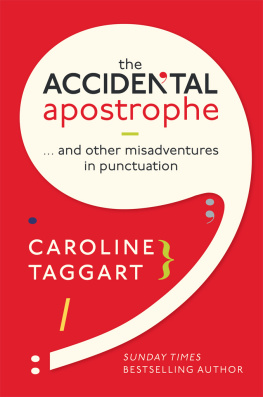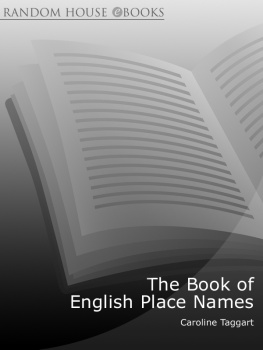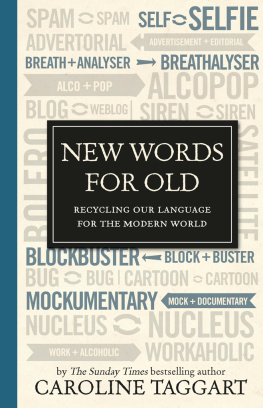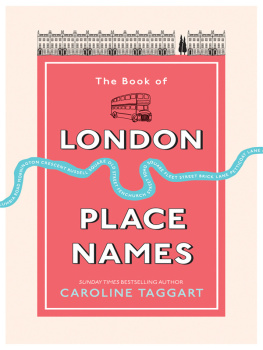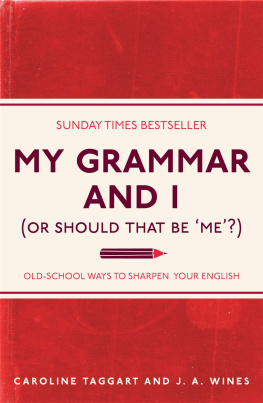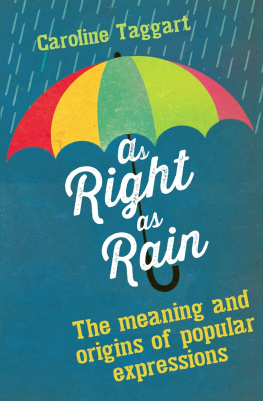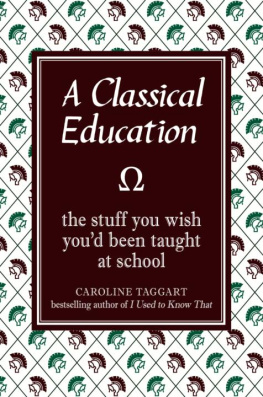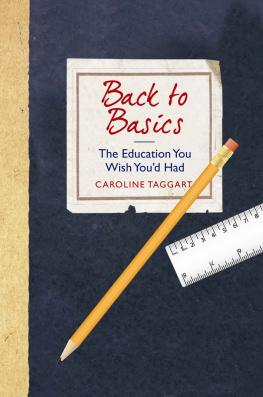CHAPTER 1
If charity begins at home (as some say it does), lets pretend vocabulary starts there too. Here are a few examples of words weve drawn from our houses and homes.
Smart fifteenth- and sixteenth-century houses were built with the top storey larger than the ground floor, producing an overhang known as a jetty. Like the jetty that sticks out into a harbour and was originally designed to protect it, it can be traced back to the French word jeter, to throw, and is related to jut. So the defining feature of any jetty is that it juts out from something. The jet of steam that emerges from a boiling kettle and the jet engine that powers jet aircraft come from the same source theyre all to do with some sense of throwing or thrusting. But the sticking out part of the house pre-dates the other meanings by a hundred years and the jet engine didnt make it into the newspapers until the 1940s.

Similar in concept to the jetty are the eaves, the part of a roof that projects beyond the side of a building. (Strictly speaking the eaves is this part of the roof, because the Old English singular ended in s and people came to assume that it was a plural when it wasnt. No matter in modern English eaves are generally considered plural.) The place underneath the eaves, outside the building, onto which rainwater was likely to drip, was called, as early as the ninth century, the eavesdrip or, later, the eavesdrop. So a person who stood there was in a good position to overhear anything that was being said inside though they ran the risk of getting wet if it happened to be raining. Shakespeare uses the idea in Richard III, when the king, haunted by ghosts on the eve of the Battle of Bosworth, wants to check on the loyalty of his troops:
Under our tents Ill play the eaves-dropper, To see if any mean to shrink from me.
Richards tents probably didnt have eaves tents dont, as a rule but the concept of listening in was well established by the time Shakespeare was writing about them.
Inside the house...
...we have some intriguing names for furniture. An ottoman, a rather old-fashioned word for a padded seat, was so called because it was covered with ottoman leather, named after the Turkish dynasty that ruled a substantial empire from the thirteenth to the early twentieth centuries. A divan is Turkish, too, and has a colourful ancestry: when the word first appeared, in the sixteenth century, it meant a council presided over by the sultan. From there it developed into the chamber in which the council met, then a more relaxed sort of chamber, with one side open to provide an attractive view. By the beginning of the eighteenth century a divan was an item of furniture, presumably originally found in such a chamber and described by a British traveller in the Middle East as a sort of low stages [sic]...elevated about sixteen or eighteen inches or more, above the floor... Upon these the Turks eat, sleep, smoke, receive visits, say their prayers, etc.

The Turkish court must have enjoyed its comforts: we owe it the word sofa, too. The English clergyman Samuel Purchas, in a 1625 collection of travellers tales, describes a Sofa spread with very sumptuous Carpets of Gold, and of crimson Velvet embroidered with very costly Pearls. Sadly, that level of luxury doesnt always feature in a modern three-piece suite.
Another pleasure of modern living we owe to the Ottoman Turks is the tulip, introduced by them to Western Europe in the sixteenth century. The name comes from a corruption of the word for turban, which the open petals of the flower were said to resemble.

One of the many meanings of board is a table, especially one spread with food (the festive board is a rather dated way of describing a celebratory meal; bed and board means you get meals as well as somewhere to sleep). Above board, meaning open and honest, comes from this sense. If youre playing cards and your hands and cards are visible above the table, youre unlikely to be cheating by, say, pulling another card out of your sleeve. Nowadays, there doesnt need to be a table involved. In modern life, its likely to be your accounts rather than your cards that need to be above board, so that your auditors rather than your fellow gamblers can see that you arent doing anything that you shouldnt be.
Another example of this sort of board is a cup-board, which was, in the fourteenth century, a table or dresser on which cups were arranged. In a wealthy home the cups would probably be of silver and accompanied by plates, goblets and the like. The piece of furniture on which they sat called a sideboard if it was placed at the side of a room, against the wall, rather than in the centre might well have drawers, shelves or what we would today call cupboards, but for the first 150 years or so of the words life, a cup-boards principal purpose was ostentatious display rather than storage. At a banquet given by Edward VI in 1551 in honour of the Dowager Queen of Scotland, the young king recorded that there were two cupboards brought in, one of gold four tiers high, another of solid silver six tiers high. Its safe to assume that these were designed to impress.
From head to toe
Personal adornment has also enriched our vocabulary, even when the styles it refers to have gone out of fashion. In the seventeenth and eighteenth centuries, a smartly turned-out gentleman would wear a long wig decorated with powder look at portraits of Charles II or Samuel Pepys to get the idea. Formal dress in British law courts mimics this to this day, with judges wearing long wigs for ceremonial occasions. Thus someone wearing a big wig came to be called a bigwig a powerful or important person and the term endured after fashions had changed and men reverted to displaying their own hair. The American equivalent big shot seems to be connected with shot meaning a person who shoots: a good shot, dead shot or big shot was someone to be reckoned with, whether or not they wore a wig. Such people could also be described as the top brass, a term that originated in nineteenth-century military circles in the USA, because of the shiny metal badges and other insignia worn by senior officers.
The best-quality wigs were made from human hair (Pepys didnt dare to wear his new one, bought at the time of the Great Plague, in case it had been made with hair cut from a victim of the disease and still carried the infection). Cheaper versions were made of horsehair or goat hair, but all were curled so that they resembled a sheeps woolly fleece. So to pull the wool over someones eyes meant not to jerk a loosely fitting jumper upwards over their face, but to jerk their wig downwards over their eyes. You could then rob them, lead them astray or otherwise bamboozle them. The figurative expression retains that last sense of to deceive or mislead: They completely pulled the wool over my eyes I had no idea what they were up to.

In the days when women of all ages had long hair, one of the signs of a girl growing up was that she put up her hair: either rolling it into a bun or chignon, or covering it with a cap. It was seen as undignified, even improper, to wear it any other way.
Next page
